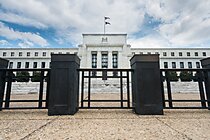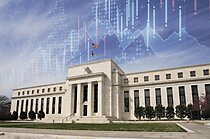Irresponsible monetary policy can undermine prosperity by promoting business cycles and otherwise preventing the price system from reflecting the true scarcity of various goods and services. Sound monetary policy limits such damaging distortions. In a fiat monetary system, it does so by assigning a central bank the overarching objective of maintaining a stable and predictable overall level of spending on goods and services, while insulating it from political pressure to pursue other, conflicting ends. But in a free society that attaches a high value to competition, consumer choice, and innovation, monetary authorities should also allow people the freedom to employ unofficial substitutes for official fiat currency: if the official monetary standard is to prevail, it should do so because it is well-managed and not because alternatives have been suppressed.
Monetary Policy
158 results found
Book Review: Plastic Capitalism: Banks, Credit Cards, and the End of Financial Control

Book Review: Virtuous Bankers: A Day in the Life of the Eighteenth-Century Bank of England

Book Review: Limitless: The Federal Reserve Takes on a New Age of Crisis

Cato Studies

Permanent Distortion

Cryptoassets

40 Years of the Annual Monetary Conference

Three Key Issues for Post-pandemic Monetary Policy

Monetary Policy

What Should the Fed (and Congress) Do Now?

The Covid-19 Coin Shortage: Causes, Responses, and Lessons

The History of Money in Podcast-Sized Bites

The Ignored Consequences of the Fed’s Interventions

Chartering the Fintech Future